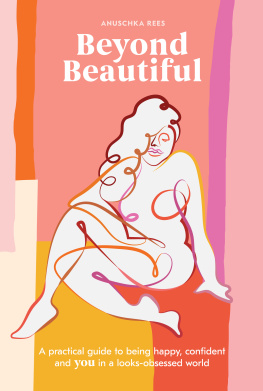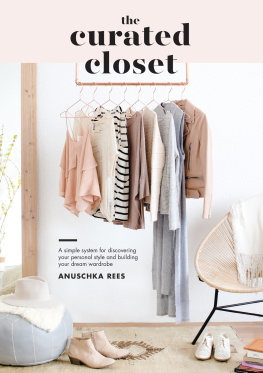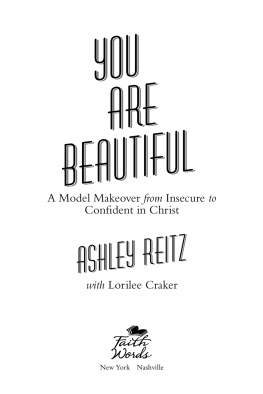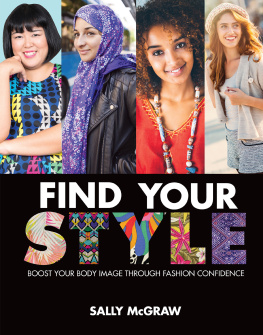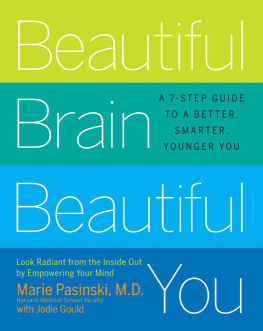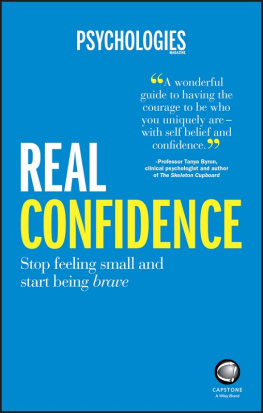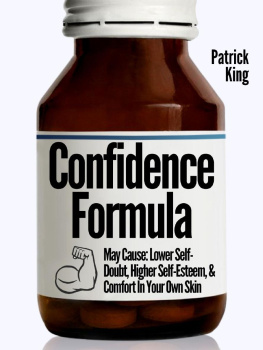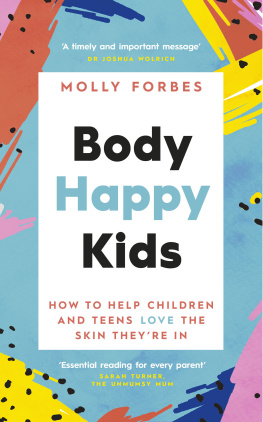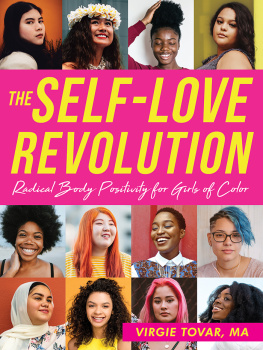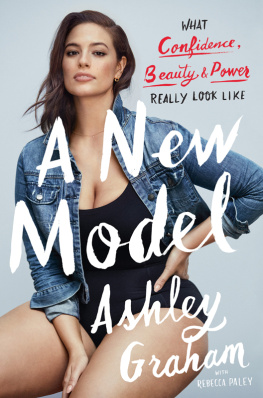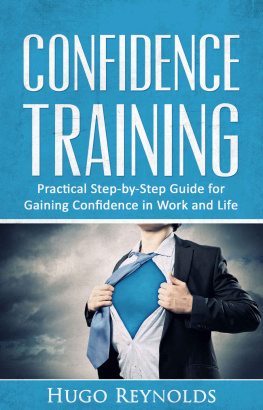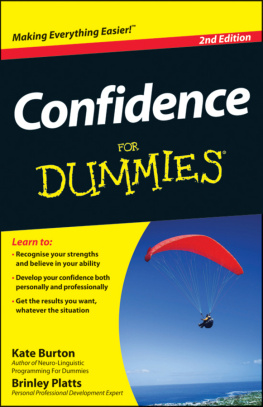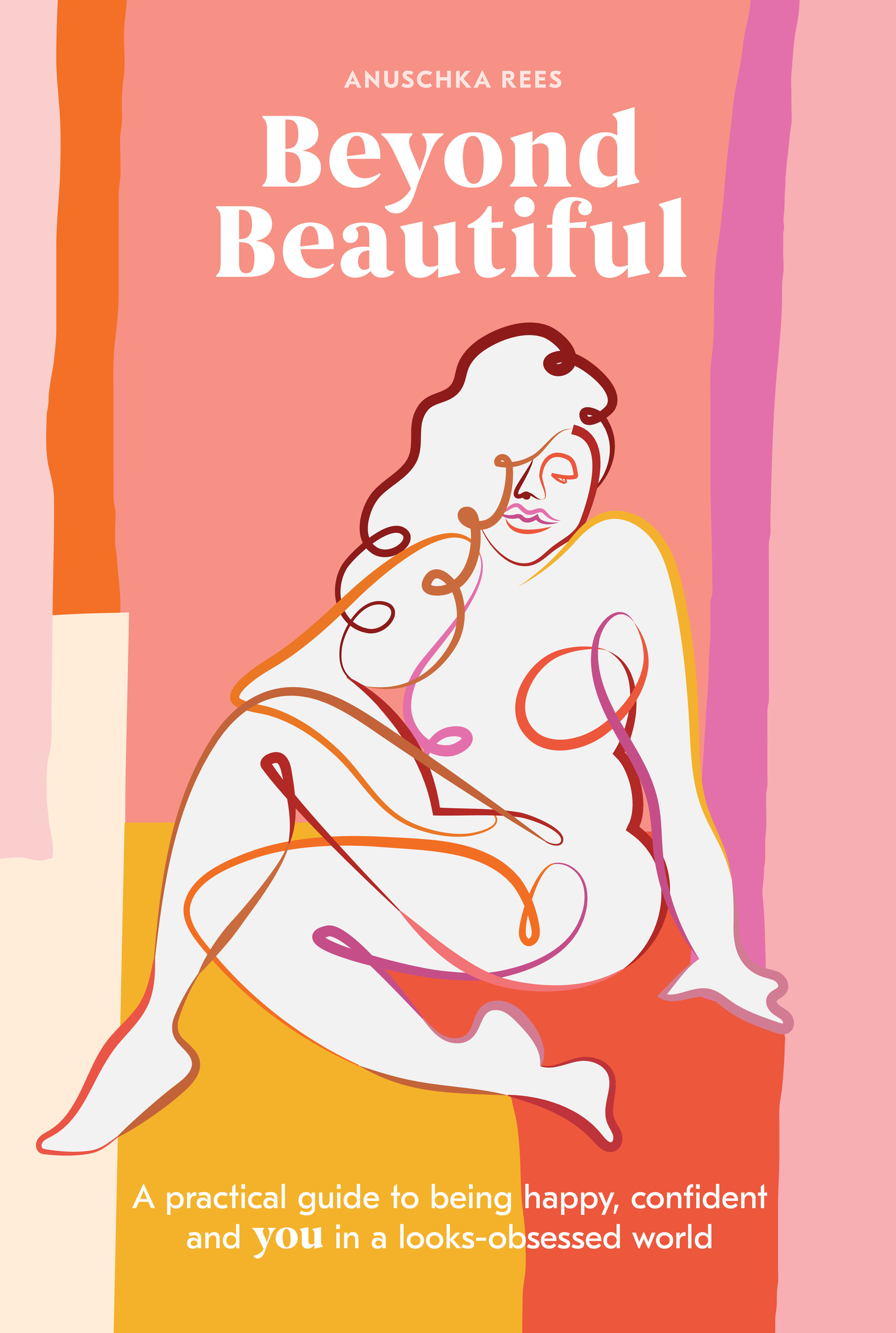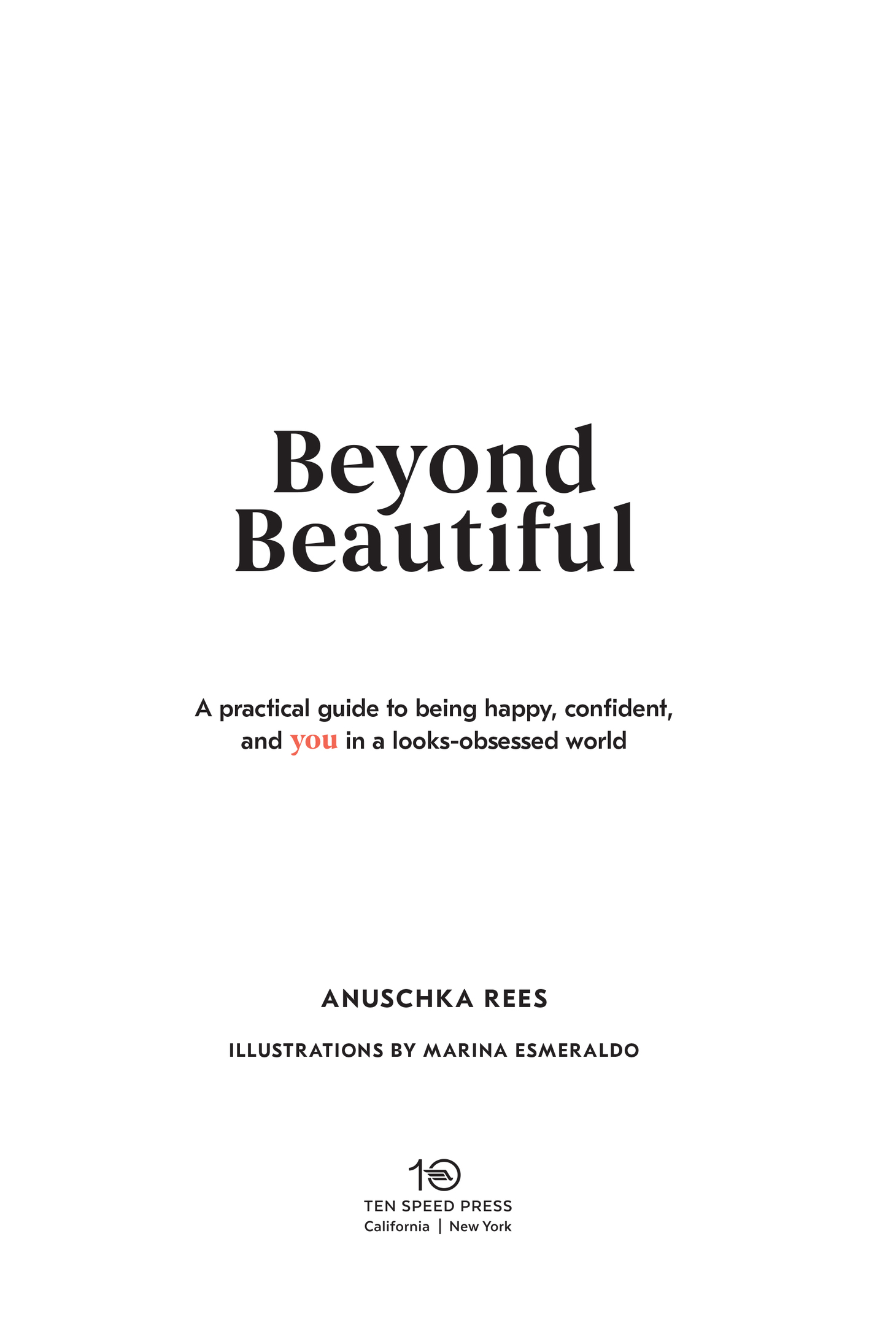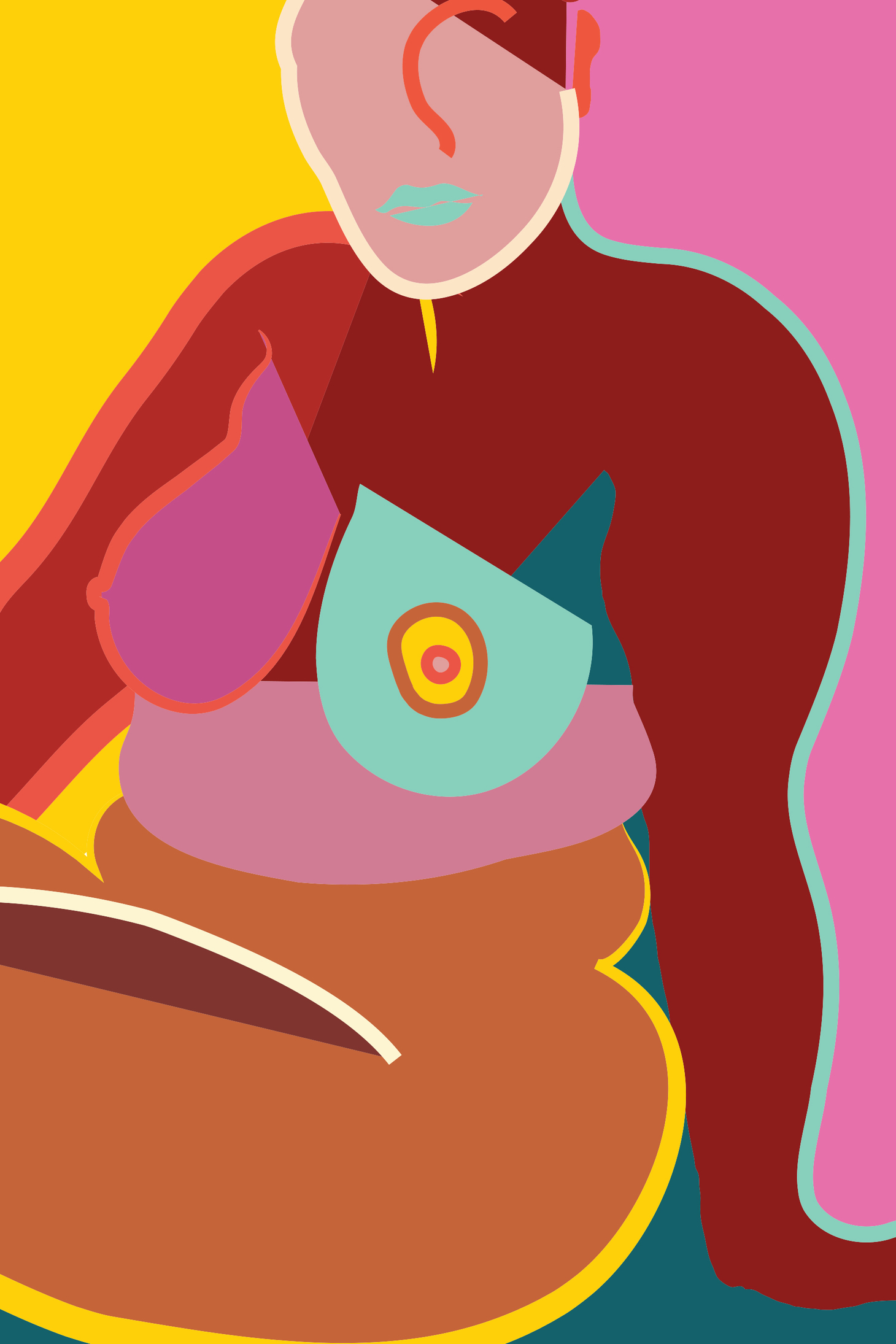All rights reserved.
Published in the United States by Ten Speed Press, an imprint of the Crown Publishing Group, a division of Penguin Random House LLC, New York.
Ten Speed Press and the Ten Speed Press colophon are registered trademarks of Penguin Random House LLC.
Names: Rees, Anuschka, author.
you in a looks-obsessed world / Anuschka Rees.
Description: Callifornia : Ten Speed Press, 2019. | Includes bibliographical
references and index.
Subjects: LCSH: Self-actualization (Psychology) | Clothing and dress. |
Beauty, Personal. | BISAC: SELF-HELP / Personal Growth / Happiness. |
HEALTH & FITNESS / Beauty & Grooming.
Introduction
Between flawless A-listers, ultralean fitness gurus, and picture-perfect social media celebrities, its getting harder and harder to feel good about the way we look. Only one out of four women in the US likes her body. The cosmetic surgery industry is booming, with more than fifteen billion dollars spent yearly on procedures in the US alone. Two out of three women are on a diet at any given time, and even more shockingly, so are more than half of teenage girls.
It doesnt take a genius to figure out whats responsible for this epidemic of low body image among women and girls. We are bombarded with images of what we should look like from the moment we wake up: theres fitspiration, thinspiration, effortlessly chic fashion bloggers, and lingerie models in ad campaigns. Fit bodies, pretty faces, and perfect outfits are rewarded with attention and social media likes; imperfections like acne, fashion fails, or extra pounds get ridiculed by commenters and gossip columnists.
The good news is that the beauty narrative in the media seems to be slowly shifting in a healthier direction. Body positivity has become a hot topic and, in response, plenty of brands have started using plus-size models in their campaigns or promised to stop retouching altogether. Allure magazine has banned the term antiaging. Barbie no longer has a thigh gap and comes in a range of different body shapes. Progress!
Beyond Beautiful includes quotes from more than 600 real women who contributed their thoughts and personal stories. Youll find these peppered throughout the book in red.
But, of course, were still quite a way from a perfectly diverse media landscape that doesnt teach girls and women to derive their self-worth from their appearance. And until then, we all desperately need a way to deal with the flood of picture-perfection on our screens.
One option: throw out your phone, TV, and computer. Or, you can read this book (wink, wink).
I stumbled upon the topic of body image after my first book, The Curated Closet, came out. The book is based on my own transformation from die-hard shopaholic with a jam-packed wardrobe but nothing to wear to conscious consumer with a less-is-more attitude. I received lots of lovely messages from readers telling me how the steps in the book were working for them, and because the way we feel about our clothes is so tied to the way we feel about our looks, many of these women also told me about their body issues: about not feeling skinny, curvy, pretty, or young enough, and how social media has upped the pressure even more.
The more I thought and read about it, the more I understood the massive impact of body-image issues on womens lives. And Im not even talking about the super serious stuff that low confidence is a risk factor for, like eating disorders, depression, or body dysmorphic disorder.
I mean all of the everyday things we do and feel because we were socialized to believe that our value is directly related to our appearance. Things like:
Not being able to enjoy a night out with your friends because youre worried about how you look.
Feeling stressed whenever someone with a camera approaches or having your day ruined by one bad photo that someone tagged you in.
Dreading your next birthday because youre convinced its all downhill from there.
Pushing yourself to complete your beauty routine even when it feels like a chore.
Feeling like your ability to find or keep love depends on your ability to stick to your diet.
Not going after a work opportunity to speak in public because you feel too self-conscious.
Feeling inhibited during sex.
Trying one diet/beauty treatment/workout routine after another in the hopes of finally finding the magic bullet thats going to make you feel good about yourself.
Declining an invitation to spend a day at the beach because you dont want people to see you in a bathing suit.
Staying away from full-length mirrors to avoid being confronted with your body.
Feeling like your weight is the main factor thats keeping you from being happy.
Imagine all the energy, time, and even money you would save if you suddenly felt fine about the way you look, and all the stuff you could do with it instead!
Of course, the fact that body image is a big problem is not a secret. Everyone from feminist bloggers to Hollywood actresses and even fashion magazines are talking about our societys unrealistic beauty ideals and the huge pressure that is put on women to fit that mold. But I noticed that theres one thing nobody talks about: a solution. Sure, we know how the media, fashion brands, and movie executives could improve the whole situation and, yes, its important that we fix whats causing our insecurities at a systemic level. But does that mean that were at the mercy of big brands and media outlets to finally stop promoting an unrealistic beauty standard? Is feeling insecure about our appearance just inevitable until further notice? Are we completely powerless?
Im intelligent, Im a feminist, and I know that societys beauty ideal is BS. So why do I care so much about what I look like?
I knew that couldnt be true. There are plenty of women who feel perfectly fine about their bodies, who arent letting features that are commonly considered flaws get in the way of living their best lives. Also, if there is one thing I learned as a psychology grad student, its that peoples thoughts, feelings, and opinions are anything but set in stone. Thats the entire basis of psychotherapy and self-development: you can change the way your mind works for the better, no matter the circumstances. That means you can also become more confident and stop seeing your body as some problem that needs fixing.
How? Well, thats what I still needed to find out. So I told my publisher that I wanted to write a practical book about body image, but I couldnt say exactly what Id write about yet. All I knew were the questions I wanted this book to answer, such as:

